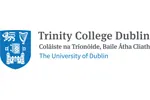About Economics, BA (Hons) - at Trinity College Dublin
Economics can be studied through the general faculty entry BESS (TR081) programme. After a common first year students select 6 subjects in second year. At the end of the second year students may opt to take a single honor degree in economics or to combine economics with either business studies or political science.
Alternatively economics can be taken in combination with one other subject within the two-subject moderatorship (TSM) programme. TSM is a joint honors programme; both subjects are studied for three years and usually one subject only is studied in the fourth and final year. When economics is combined with geography, German, mathematics or sociology students may opt to study both subjects equally for all four years.
What is economics?Economics is one of the social sciences. Any society has to address the problem of how and what to produce for its material survival, and how the goods and services that are produced should be distributed among its population. Economists explore how people and institutions behave and function when producing, exchanging and using goods and services. Economists' main motivation is to find mechanisms that encourage efficiency in the production and use of material goods and resources, while at the same time producing a pattern of income distribution that society finds acceptable.
Many of the problems that dominate our newspaper headlines are economic problems. Why are some countries poor with very low growth rates while a small number of countries enjoy high living standards and high growth rates? What is the role of international trade and finance in explaining these global inequalities? Why are some countries so much more successful at creating employment or reducing unemployment than other countries? Within countries, why do some people earn so much more than others, and what are the best ways to tackle and reduce poverty? Is it possible to pursue economic growth and still protect our natural and physical environments? How should governments try to raise the finance needed to pay for health and education services and income support programmes? What is the proper role for government in the economy? Would we be better off with higher taxes but also better social services than we presently enjoy?
Calling economics a social science also reflects the way economists analyse problems, in that economists aim to develop theories of human behaviour and test them against the facts. These theories are summarised in economic models that define the relationships between variables that we believe best explain the events we observe. An important part of the work of an economist is collecting and analysing observations about economic phenomena - prices, employment, costs - what we call data. The art of the economist is to blend together theory, data and statistical techniques to arrive at a new understanding of economic problems or to make policy recommendations that hopefully will improve the welfare and living standards of our society.


